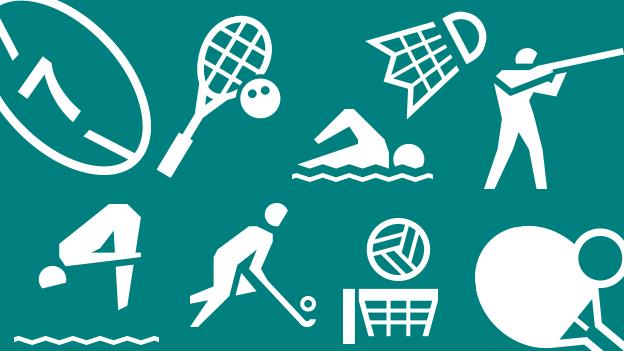Glasgow 2014: Commonwealths hailed best in 84-year history
- Published
- comments
Glasgow 2014 has been hailed as "the standout Games in the history of the movement" by Commonwealth Games Federation chief executive Mike Hooper.
After 11 days of action across 17 sports, the event came to a close at Hampden Park on Sunday evening, with hosts Scotland finishing fourth overall with a record haul of 19 golds and a best-ever tally of 53 medals.
England topped the medal table for the first time in 28 years, Wales surpassed their target of 27 and Northern Ireland reaped their largest tally since the Games was last in Scotland in 1986.
The Isle of Man had a silver to celebrate thanks to cyclist Peter Kennaugh's efforts in the points race, but Jersey and Guernsey failed to register.
Final medals table | |||||
|---|---|---|---|---|---|
Country | Gold | Silver | Bronze | Total | |
1. | England | 58 | 59 | 57 | 174 |
2. | Australia | 49 | 42 | 46 | 137 |
3. | Canada | 32 | 16 | 34 | 82 |
4. | Scotland | 19 | 15 | 19 | 53 |
5. | India | 15 | 30 | 19 | 64 |
12. | Wales | 5 | 11 | 20 | 36 |
17. | Northern Ireland | 2 | 3 | 7 | 12 |
27. | Isle of Man | 0 | 1 | 0 | 1 |
It is the third time in their 84-year existence that the Games have been staged in Scotland - after Edinburgh in 1970 and 1986 - and chief executive Hooper maintains they have been the best.
"In my view, they are the standout Games in the history of the movement," said the New Zealander of the 20th edition.
"The way in which the people of Scotland and Glasgow have embraced the Games right from the get-go has been incredible."
After an underwhelming staging in Delhi four years ago, and the withdrawals of a succession of big names in the build-up to Glasgow, there had been concerns over whether such success would be forthcoming.
Fragapane makes it four golds
But all the events have been well attended and, for the most part, the weather has also been favourable, as a new generation of athletes have taken their chance to impact on the public consciousness.
Botswana's Nijel Amos beat world record holder and Olympic champion David Rudisha in the 800m; Scotland's Ross Murdoch stunned poster boy and compatriot Michael Jamieson to take gold in the 200m breaststroke; English 16-year-old Claudia Fragapane claimed four gymnastics golds and 13-year-old Erraid Davies' took a swimming bronze for Scotland.
Scottish postman Charlie Flynn's response to winning lightweight boxing gold made him a cult figure, as did Lynsey Sharp's gutsy 800m silver just hours after being hooked up to a drip in the village hospital.
Rhythmic gymnast Frankie Jones ended her career by winning six gymnastics medals for Wales and the hosts' flag-bearer Euan Burton concluded his career with judo gold minutes after English wife Gemma Gibbons claimed silver.
But the big names who did appear delivered too.
Usain Bolt anchored Jamaica to 4x100m relay gold to make everyone forget about claims he had been disparaging about the Games; South African swimmer Chad Le Clos won a record-equalling seven medals; Northern Ireland's Olympic gold medallist Paddy Barnes made history by retaining his light-flyweight title and England's Nicola Adams claimed the first ever women's boxing gold; England's Tom Daley took 10m platform diving gold; and David Weir romped to his first Commonwealth title in the men's T54 1500m.
That was one of 12 English Para-sport medals - from a tally of 174 - with Scottish athletes claiming seven from a total of 53 and their Welsh counterparts three from 36.
Baroness Tanni Grey-Thompson has praised the programme, but the Welsh 11-time Paralympic gold medallist says some Commonwealth nations still "need to do more" before the 21st Games in Australia's Gold Coast four years from now.
Of the 17 sports on the Glasgow schedule, judo will be absent in 2018. That means 13 medallists from both England and Scotland, two from Wales and one from Northern Ireland will not get the chance to emulate their successes.
Instead, the home nations' basketball players will get their chance to shine.
Whether judo will return for 2022 is unclear. So, too, is the venue for those Games, with Canadian city Edmonton and South African city Durban both bidding to host the event.
"The entire executive board of the Commonwealth Games Federation have been delighted with the Glasgow Games," added Hooper. "They are all very excited about the future of the movement going forward to Gold Coast [in 2018] and then beyond."
What effect the events of the past 11 days will have on Glasgow and Scotland will not be clear for some time either.
Glasgow 2014 in numbers | |
|---|---|
Almost 3.5 million people passed through the city's Central Station | More than 50,000 cuddly Clyde Mascots were sold |
1.2 million tickets were sold | An estimated 100 tonnes of fruit and vegetables were consumed |
171,000 people attended the Rugby Sevens - a record for the sport | 15,000 Clydesiders volunteered at the Games |
David Grevemberg, the chief executive of Glasgow 2014, believes the city has shown that it has a "special way of hosting sport".
"I believe this is the beginning, not the end," the American said. "The legacy of these Games will live on in the children it has inspired and I hope, as a committee, we have done all we can to ensure that Glasgow 2014 becomes a part of everybody's lives in some way."
The jamboree ended with a closing ceremony opened by Glaswegian singer Lulu and closed by Scottish singer-songwriter Dougie MacLean.
In between were athletes emerging from tents, speeches, a presentation from the Gold Coast organisers, Kylie Minogue, more speeches, chips, policemen dancing the slosh and yet more speeches.
Then, before the lights were turned off at Hampden Park, a mass rendition of Auld Lang Syne bid farewell to Glasgow 2014.
- Published4 August 2014
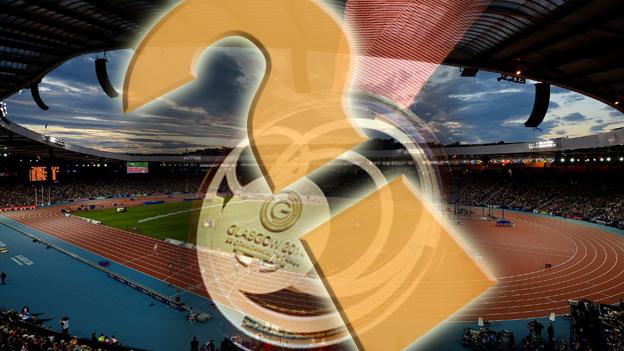
- Published3 August 2014
- Published3 August 2014
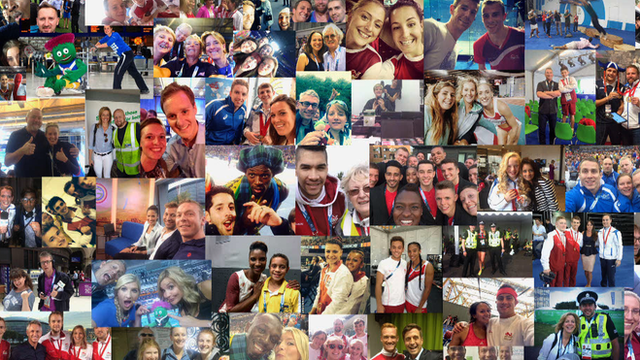
- Published3 August 2014
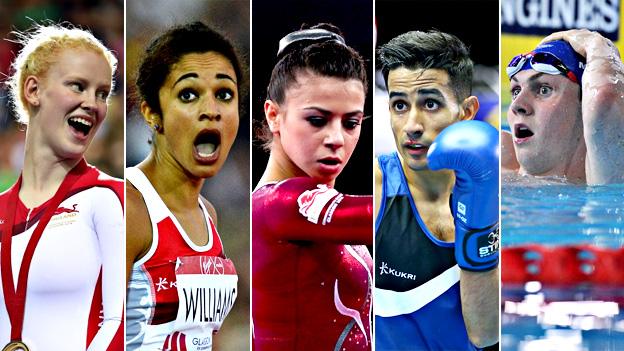
- Attribution
- Published3 August 2014
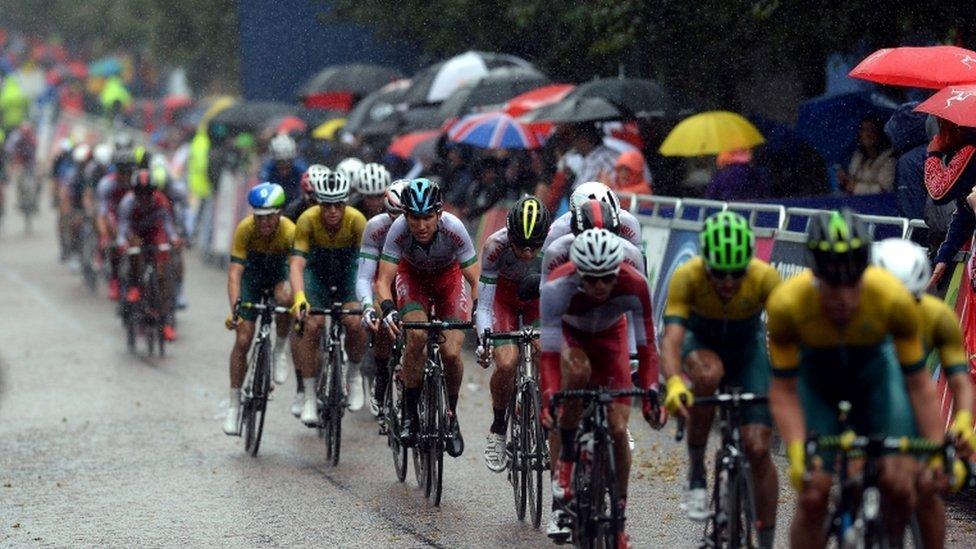
- Published3 August 2014
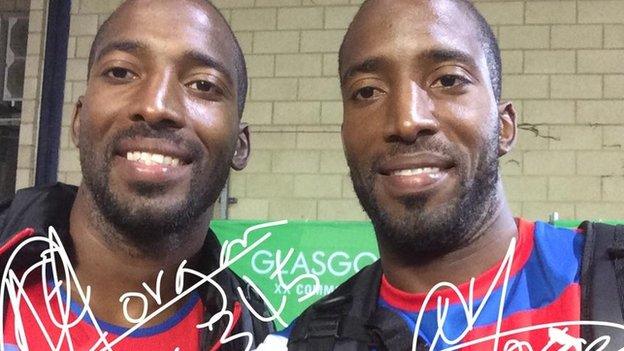
- Attribution
- Published17 July 2014
